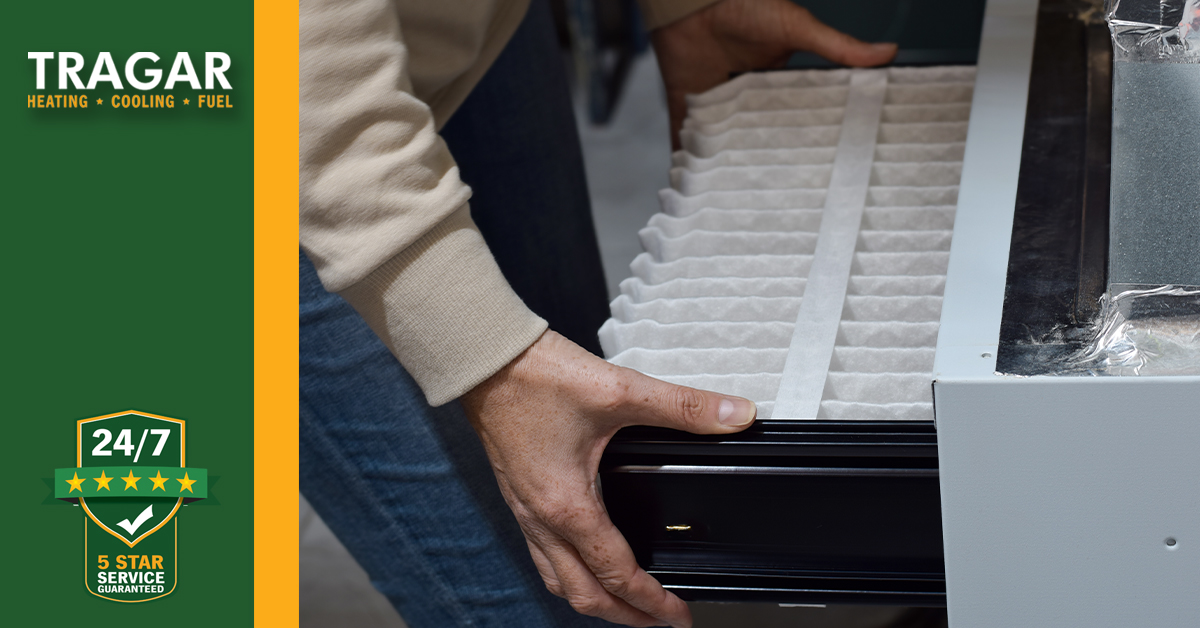 Every fall it seems there are endless autumnal chores needed to clear your yard and prepare your house for winter. While you cross those items off your to-do list, don’t let regular maintenance tasks slip through the cracks, especially those involving your HVAC system.
Every fall it seems there are endless autumnal chores needed to clear your yard and prepare your house for winter. While you cross those items off your to-do list, don’t let regular maintenance tasks slip through the cracks, especially those involving your HVAC system.
As you prepare to run the heat for the first time this season, be sure to check your air filter and to change it if necessary.
What Are the Benefits of Changing Your Air Filter?
Air filters trap dust, pollen, allergens, mold, bacteria, pet hair, dander, and other contaminants before they enter your HVAC system. This keeps your air cleaner and your system functioning better. Changing your filters regularly can help improve your furnace’s efficiency, reduce energy bills, extend HVAC lifetime, and improve air quality.
Filters typically are made of fiberglass, pleated cloth, or electrostatic fibers. These are available at a wide variety of price points as well as with varying levels of efficiency and efficacy. Regular filters have a minimum efficiency reporting value (MERV) rating between the numbers 1 and 16 – indicating how effective they are at excluding contaminants. The higher numbered MERV rating performs better and usually sells at a higher cost.
Filters with a ranking of above 16 meet the standard to be considered a HEPA filter. HEPA filters remove 99.97 percent of airborne particles 0.3 microns and larger.
What Happens If You Don’t Change the HVAC Filter?
When filters aren’t changed regularly, dust, pet hair, and other contaminants create a barrier to the free flow of air. This causes your system to run longer and increases your utility bills. It also puts added strain on HVAC equipment and can even damage your evaporator coils, sometimes leading to total system failure.
Most immediately for your well-being, dirty filters allow contaminants to circulate through your air. This can lead to headaches, scratchy throats, and itchy eyes as well as aggravating allergies and asthma. Long-term effects of breathing unclean air can include respiratory illness, heart disease, and cancer.
Changing your filters regularly protects your health, your HVAC system, and your wallet. Spending a modest amount of money on a new filter today guards against higher costs and health consequences down the road.
How Often Should You Change an HVAC Filter?
Depending on your system and living circumstances, filters should be changed every 30-90 days. In an average home with no pets, it’s recommended that you change your filter at least every 90 days; if you have a pet, change it at least every 60 days. If you have multiple pets, if your home is in a high-dust area, or if there are allergy- or asthma-sufferers in your home, you should swap out the filter every 30-45 days.
If your home isn’t continuously occupied, you may not need to change filters for up to six months, depending on how often the system is run and if pets are present when you are in residence.
Let Tragar Improve Your Air Quality and System Function
As Long Island’s trusted name in heating and cooling, Tragar Home Services is qualified to install new HVAC systems, maintain or repair existing systems, and deliver environmentally friendly Bioheat® fuel. Our team of professionals can help you improve air quality in your home by recommending the correct filters, installing whole-house purification systems, and upgrading your current system to ensure cleaner, healthier air and optimal equipment function. Contact us online to schedule an appointment for any of our services; we look forward to hearing from you.


One Response